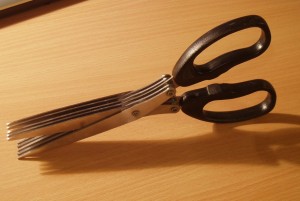Daily Diary for March
This column originally was published in the March 2014 edition of The Columnist, the members’ newsletter of the National Society of Newspaper Columnists.

Ben Pollock
Stephen Ironside photo
By Ben Pollock
Director of Media
National Society of Newspaper Columnists
I want to wish everyone the best of luck in our column contest. I’ll be entering again. An eternal optimist, I’ve only gotten an “honorable mention” once, but you never know. The deadline’s been extended two weeks, but April 1 still will be here before you know it.
• • •
Attention, bloggers and columnists — anyone who publishes online: Back-up your own published material, especially if a third party uses it. Earlier in February a columnist friend told me her newspaper lost her blog posts during a website redesign. Her editor said he expected the pieces would reappear but that hadn’t happened … yet.
Even a major magazine can blow up old content: “U.S. News deletes archived web content published before 2007.”
“I [Romenesko] asked U.S. News editor Brian Kelly about this. He writes: ‘Last week we launched a new content management system and decided that we could not effectively keep archived web content published prior to 2007 on our site. Those stories, which mostly originated in the print magazine, are available on the LexisNexis and EBSCO archive services, as well as in bound volumes.'”
Magazine journalist James Fallows commented: “Deleting U.S. News archives ‘seems cheesy, surprising, and sad.‘”
• • •
In recent weeks, fellow NSNC’er and longtime Arkansas friend Phil Martin has been sharing his Sunday column on popular culture with the Yahoo discussion group of NSNC members. His column is behind the paywall of the Arkansas Democrat-Gazette in Little Rock, to which very few NSNC’ers are interested in subscribing. This essay of his is not from the newspaper but the blog of the North American Review literary journal, and it would be of interest to us writers. “Writing for Dummies” is about the trials and wonders specifically of column writing. Here’s hoping Phil comes to Washington for our June conference — and brings his comparably talented wife, Karen Martin.
• • •
The Association of Alternative Newsmedia published a column by Christina Cauterucci, “The New State of Alt Media,” her analysis of the state of what commonly was called the “alt weekly.” Her conclusion quotes an editor, “We’re not weeklies any more. We’re all-the-timies.” For those of us who impulsively pick up these tabs when we dropped by a coffee house, this is a great snapshot of the segment of our industry. I have a quibble: While the talk is about the “weekly” — and note how the association has changed its name — I’m curious about the impact of the word “alternative.” Most of these papers are owned by corporate media now, so to what are they an alternative, anymore?
• • •
Former NSNC Treasurer Don McNay’s latest Huffington Post column, “How Facebook Can Get You Terminated and Keep You Terminated,” deserves a shout-out here. It’s blunt advise on how casual posting on Facebook or other social media can get you in big trouble that you likely cannot wiggle out of. I’m grateful Don still studies the impact of social media. A few years ago at an NSNC conference he gave what still is great advice. (I don’t recall if it was in a presentation or just lunch table conversation.) I relayed it last month in Facebook: His advice back then — for writers either known or trying to get there — was to make all settings fully public, then to keep everything G-rated. Accept as friends virtually anyone who asks, i.e. strangers. (You can and should tell Facebook to limit what posts of theirs you see.) Promote yourself, and enjoy posting and responding to the personal asides that Facebook makes fun. Moderation, too.
• • •
The most popular post at NSNC’s Facebook page last month was Amtrak’s announcement of free train passes to writers, where scribes can take a loooong round-trip ride to get some work done. Many of us don’t realize opportunities like this ALWAYS have a catch. It’s a smallish exchange here, but the passenger train marketers want a few tweets or blog posts in return for the trip. Journalists know to be cautious but others may not see this as a possible conflict of interest. As a help, here is the link to the Code of Ethics of the Society of American Travel Writers.


